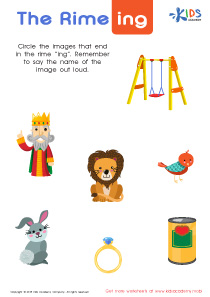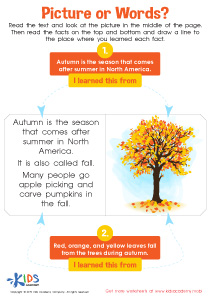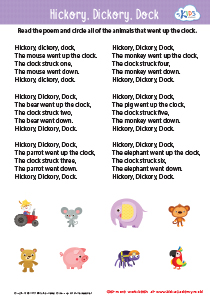Letter recognition Extra Challenge Reading Worksheets for Ages 5-7
3 filtered results
-
From - To
Introducing our "Letter Recognition Extra Challenge Reading Worksheets" specifically designed for children aged 5-7! These engaging and interactive worksheets provide an exciting way for young learners to enhance their letter recognition skills. Each activity is crafted to challenge and motivate, offering a variety of formats that include colorful visuals and fun exercises. Whether your child is identifying letters, matching them to images, or tracing, these worksheets promote literacy development while keeping learning playful. Perfect for classrooms or at-home practice, our worksheets help build confidence and foster a love for reading. Download now and watch your child's skills soar!
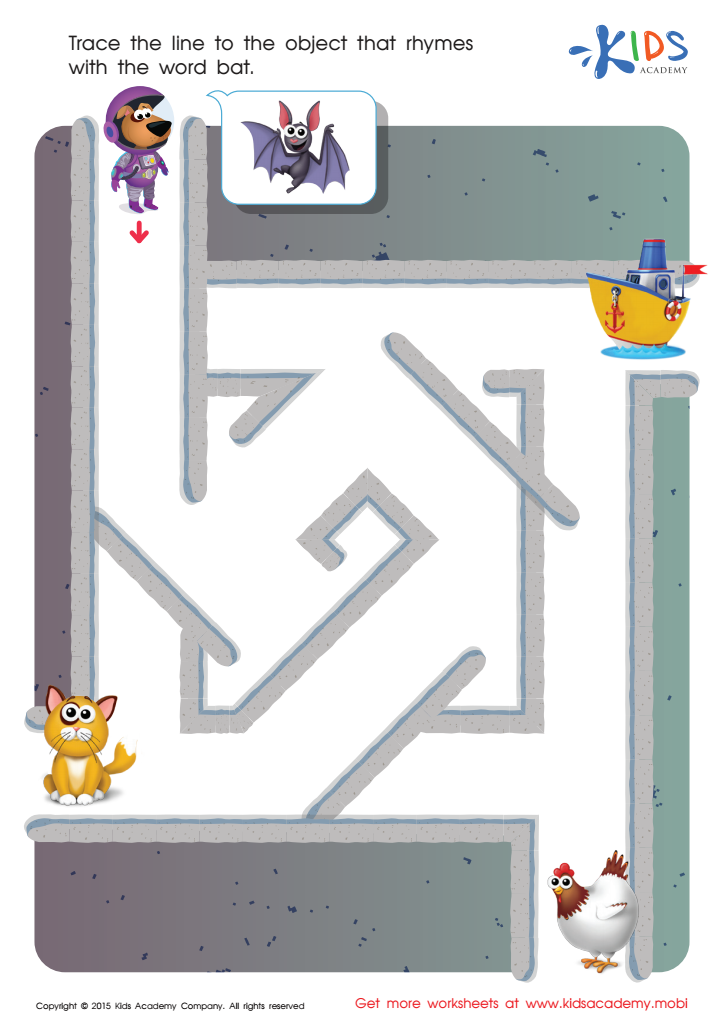

Bat Rhyming Words Worksheet
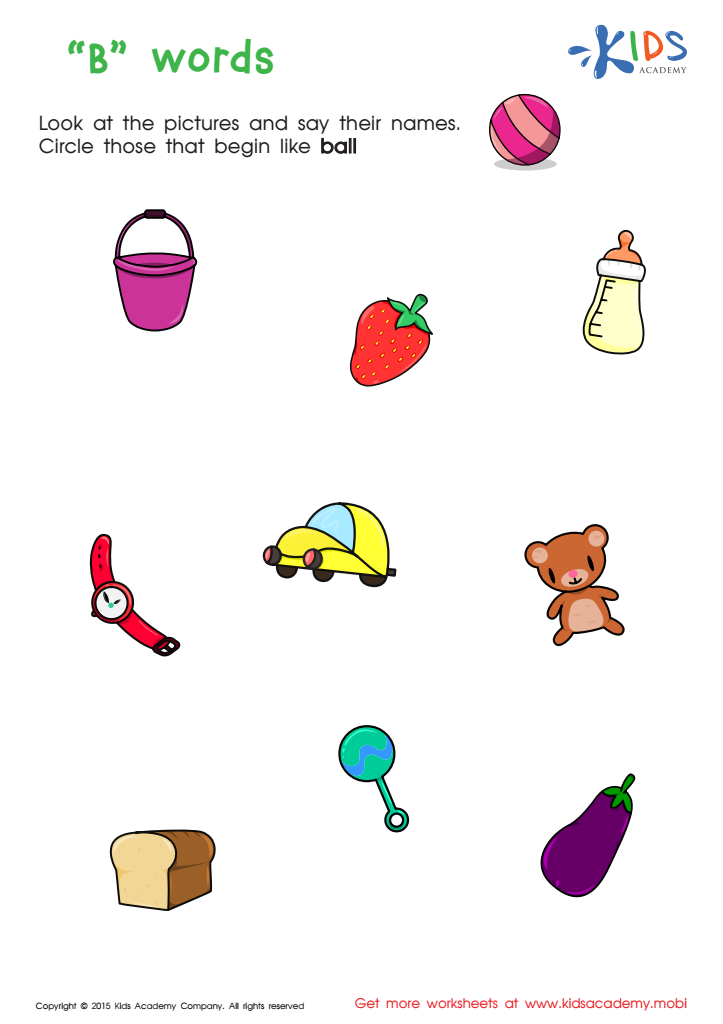

First Words Worksheet
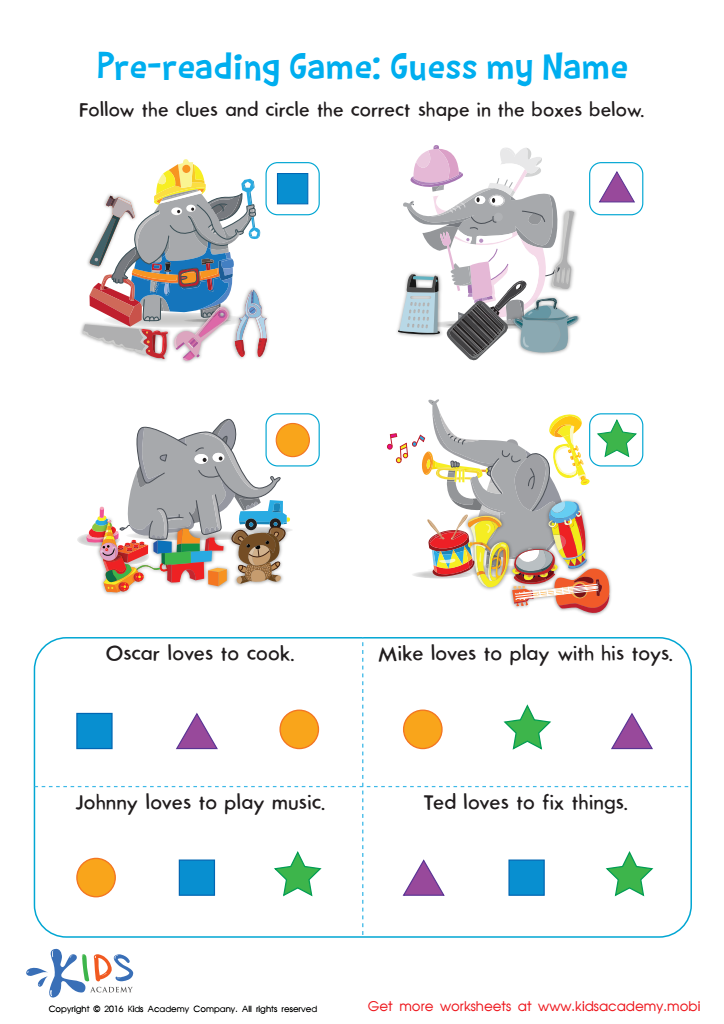

Pre Reading Worksheet Guess My Name
Parents and teachers should care about letter recognition, especially in reading programs tailored for ages 5-7, because it forms the foundation for literacy development. Mastering letter recognition is crucial for young learners as it empowers them to decipher words, boosting their confidence along the way. Early reading skills serve as a gateway to effective communication and academic success.
By engaging children in extra challenge activities that enhance letter recognition, parents and teachers provide opportunities for children to strengthen their cognitive skills. These activities can include fun games, creative writing, and phonics-based exercises, turning learning into an enjoyable experience. Children become more curious and excited about literacy when challenged appropriately.
Furthermore, letter recognition is linked to overall brain development. Children who recognize letters early on are more likely to develop strong reading fluency, which is essential for proficient learning in higher grades. This, in turn, influences their performance across all subjects, fostering a lifelong love of learning.
Ultimately, prioritizing letter recognition helps create a strong educational foundation, equipping children with essential skills and bagging them advantages that extend far beyond the classroom. Therefore, investing attention and resources into this area is critical for responsible caregivers and educators.
 Assign to My Students
Assign to My Students




.jpg)






